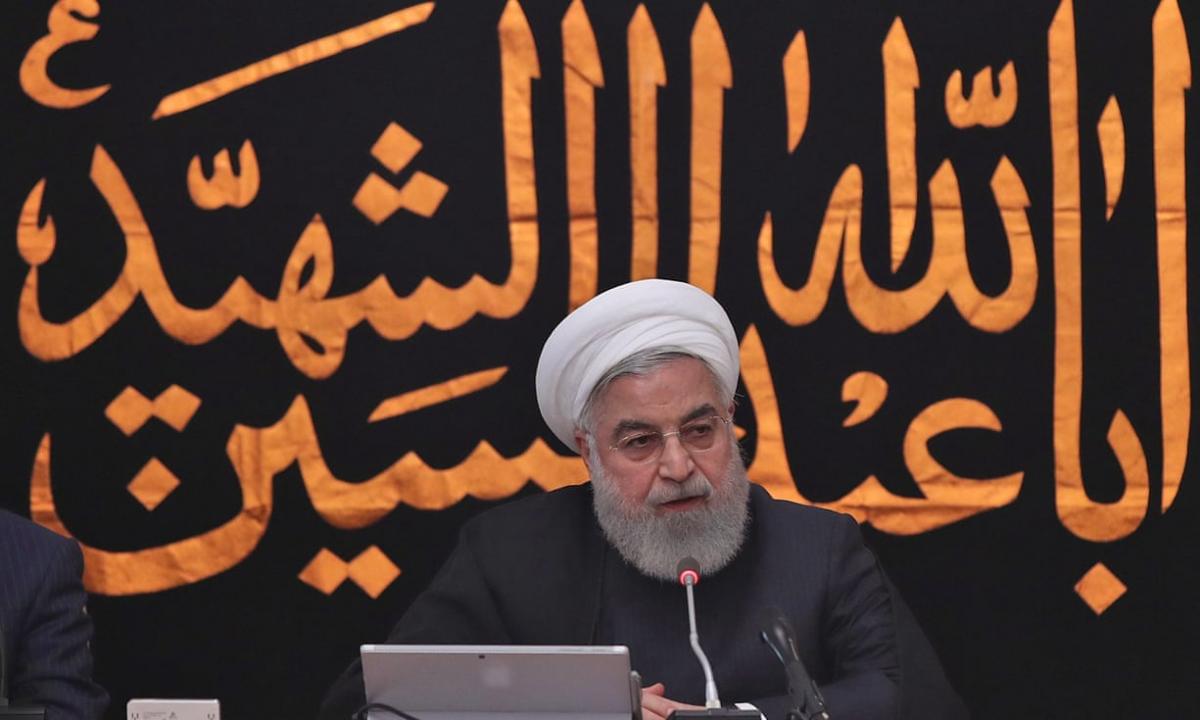Iran has been sending different – and contradictory – messages. Iranian President Hassan Rouhani had expressed interest in meeting Trump a number of times; however, the supreme leader of the Iranian regime has so far rejected such talks.
Iran might be waiting for the results of the upcoming US presidential elections to see if they could deal with a democratic president, who might potentially be less demanding than the current one. If they are able to survive their financial crisis until a new president – or the same – gets confirmed, Iran might not want to surrender to the US conditions and negotiate a deal that would make Trump looks stronger ahead of the elections. The question is, can they survive the US financial pressure until then?
While the Iranian regime is trying to find a way to weather the financial storm, Israel has been busy attacking Iran’s presence in the region, mainly the facilities that are used by Iran and its proxies to develop the precision missiles. Israel has been bombing these facilities in Syria for a while now, but as Hezbollah has moved some of them to Lebanon and Iraq, Israel widened its Syria strategy to target these facilities as well.
EXPANDING THE REGIONAL STRATEGY
Earlier this week, unknown warplanes targeted an arms depot and posts of Iranian-backed militias in eastern Syria, near the Iraqi border, killing at least 18 fighters. An Israeli military statement said that following this attack, rockets had been fired from Syria – specifically near Damascus - but all failed to hit Israeli territory.
Also, Israel and Hezbollah have traded fire for the first time since the 2006 July war. After Israel hit Hezbollah’s headquarters in the southern suburbs of Beirut, targeting what seems to be an industrial mixer that helps in developing precision missiles, Hezbollah launched anti-tank missiles at an Israeli armored vehicle near the border, causing no casualties. Israel retaliated with artillery fire into southern Lebanon.
Hezbollah said that the missile attack was retaliation for an Israeli airstrike that took place end of August near Damascus that killed two of its members.
Only one day later, Iraqi media reported that an unmanned aerial vehicle struck a weapons depot belonging to pro-Iranian Shiite militias. The targeted depot is near the Iraqi city of Hit, in the country's western Anbar province that borders Syria, not too far from the sites that targeted Deir Ezzour, east of Syria.
All these attacks seem to have targeted several of Iran’s precision missile facilities, which Israel has repeatedly warned the international community about for the months. Israel has accused Hezbollah of attempting to transform its 130,000-missiles to precision missiles using Iranian precision-guidance technology. The Israel Defense Forces recently released information about such a facility belonging to Hezbollah, located in the Bekaa Valley in Lebanon.
This – and other facilities in Lebanon – haven’t been bombed by Israel, but the revelation of the site was a message, or a warning, to Hezbollah and the Lebanese government, that if Hezbollah doesn’t cease work on its precision missiles project, Israel will go ahead and bomb them. Many expect Israel will be ready to do that after the Israeli elections scheduled on September 17, 2019, and government formation.

THE NUCLEAR DEAL
As the US increases sanctions against the Iranian regime and Quds Force officials, Iran decides to pressure the international community in its own way, mainly to put more pressure on the Europeans to help Iran with sanctions.
On May 8, 2019, Tehran decided to reduce its commitments to the JCPOA, based on Articles 26 and 36 and set a deadline for Europeans to remedy breaches.
On September 8, Iran informed the IAEA that it will reinstall centrifuges pipes in research and development lines to put in place a 164-chain of IR-4 centrifuges and a 164-chain of IR-2M.
While the Europeans – mainly the French president Emmanuel Macron – are still trying to organize a Trump-Rouhani Summit, Israel revealed what it says is a secret Iranian nuclear weapon development site.
Israeli Prime Minister Benjamin Netanyahu showed earlier this week some satellite images and map coordinates of the nuclear site in the central Iranian region of Abadeh. Netanyahu said the information came from nuclear archives that Israeli agents stole from Iran's capital, Tehran, in early 2018.
IAEA said its inspectors confirmed that Iran is preparing to use more advanced centrifuges capable of refining uranium, a key component of nuclear weapons. The organization stated that the equipment that Iran has "prepared for testing" includes several types of centrifuges prohibited under the 2015 nuclear deal.
IRAN’S CHOICES
One, Iran can decide to do nothing else and wait for the US elections, then decide who to negotiate with and on what conditions.
Two, Iran can accept Trump’s offer to negotiate before the elections, but this means that they are no longer capable of weathering the financial difficulties.
Three, Iran can escalate more in two directions:
One, it can further reduce its commitments and restart activities at the Arak heavy-water nuclear reactor. Heavy water can be employed in reactors to produce plutonium, a fuel used in nuclear warheads. This has two implications: Europeans will no longer be able to protect the nuclear deal and will have to withdraw as well. The US – and Israel – might resort to military measures against Iran, mainly against these facilities, to prevent Iran from developing a nuclear weapon.
Two, Iran can start a war against Israel – and the US – in the region, using its proxies such as PMFs in Iraq against US bases and interests, and Hezbollah in Lebanon and Syria, against Israel. However, this choice is too risky for Iran as a war means Iran and its proxies will lose much more than they have lost today. In addition, their financial crisis will make them reconsider going into a war that is also costly.








